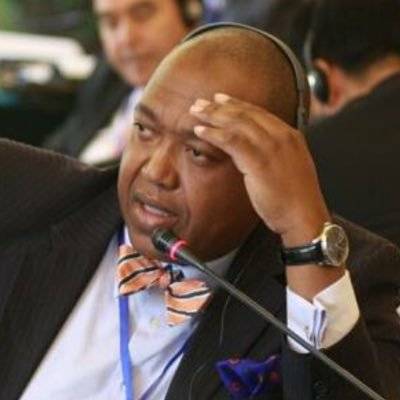Talks about the River Nile between Sudan, Egypt and Ethiopia held in Khartoum on 5 April were deadlocked. The discussions revolved around Ethiopia’s construction of the Grand Renaissance Dam. The $4 billion hydroelectric project is on the Blue Nile, in the Benishangul-Gumuz Region of Ethiopia, about 15 km east of the border with Sudan. Egypt is concerned that the dam will have a damaging impact on the flow of the Nile and its share of water from the river.
After years of informal talks, tensions between Ethiopia and Egypt have intensified. On 29 January, Egypt’s President Abdel Fattah Al-Sisi and his Sudanese counterpart Omar Hassan Al-Bashir met the former Ethiopian Prime Minister Hailemariam Desalegn on the sidelines of an African Union (AU) summit in Addis Ababa. The meeting was intended to kick start a process of engagement in respect of the Nile. According to Reuters, the three leaders “instructed their water and energy ministers to draw up in one month a report that will thrash out ways to resolve all outstanding issues regarding the dam.”
The Nile flows from two tributaries; the White Nile is considered to be the headwater and the Blue Nile its main water source. The former rises in the Great Lakes of Africa between Rwanda and Burundi and the tributary of the Blue Nile is Lake Tana in Ethiopia, which contributes over 80 per cent of the Nile’s flow. The White and Blue Niles converge in Khartoum and flow downstream to Egypt, which relies on the 55.5 billion cubic metres of water that it takes from the river; around 93 per cent of Egypt’s 94 million citizens live along the banks of the great river.
#RenaissanceDam
There have been a number of treaties over the years between the countries which share the water of the Nile. Most of these agreements excluded the main player, Ethiopia, which for many years lacked political stability and muscle, leading to its neglect and isolation on key decisions regarding the river.
However, the economic and political fortunes of Ethiopia have changed, along with its geopolitical status. Egypt insists on referring to the 1959 agreement with Sudan for its share of water from the Nile. This was a supplement of previous agreements giving Egypt the right to its aforementioned share of Nile water every year and Sudan 18.5 bn cubic metres. The government in Addis Ababa argues that Sudan and Egypt divided the flow of the water without taking into account Ethiopia’s needs.
READ: Ethiopia blames Egypt for failure of dam talks
Appealing to logic, often with little success, Egypt has in turn argued that Ethiopia receives over 510 mm of rainfall annually whilst it has to do with a meagre 200mm for its much larger population. Since the toppling of Hosni Mubarak in 2011, Egypt has changed its tone, upping its threats to Ethiopia. Abdel Fattah Al-Sisi told the Financial Times in December last year that “the Nile is a matter of life and death” for Egypt. His predecessor, President Mohammad Morsi, was less relenting on the subject: “If the Nile diminishes by one drop then our blood is the alternative,” he vowed. Such inflammatory statements have not made the situation easier; instead, they have led to Ethiopia digging in its heels when dealing with Egypt on the subject.
![Nile River Basin covers territories in Egypt, Sudan, Central African Republic, Eritrea, Ethiopia, Kenya, Rwanda, Burundi and Tanzania [File photo]](https://i0.wp.com/www.middleeastmonitor.com/wp-content/uploads/2016/08/nile-map-large-233x333.jpg?resize=233%2C333&ssl=1)
Nile River Basin covers territories in Egypt, Sudan, Central African Republic, Eritrea, Ethiopia, Kenya, Rwanda, Burundi and Tanzania [File photo]
What, then, is the way forward? A senior Ethiopian official told me that the biggest challenge in negotiating with Egypt is its “attitude towards Africans.” He mentioned the threating tones from Morsi and Al-Sisi whilst negotiations were taking place. He also decried an incident which took place in May 2016 during the UN Environmental Assembly in Addis Ababa. The head of the African Diplomatic Corps instituted a formal protest to the assembly after the head of the Egyptian delegation, Mohamad Hisham Shoeir, is alleged to have called Africans “dogs and slaves”.
The official went on to explain to me about Ethiopia’s right to its national sovereignty, ownership of land and natural resources. “There is no question regarding the [oil and gas] resources of the Gulf States, so why must Ethiopia enter into negotiations regarding its own natural resources and the use thereof?” he asked.
Ethiopia elected a new Prime Minister, Abiy Ahmed, on 2 April. There are doubts that he will be easy in the negotiation process.
Ahmed is from Oromia, a region which in October last year benefited from a 40 million Birr ($1.5 million) donation for the rehabilitation of displaced people from the Ethiopian-born Saudi billionaire Mohammed Hussein Al-Amoudi. Notwithstanding his disagreements with some regional politicians at times, Al-Amoudi has vast business interests in the region and an entrenched relationship with its people. He was detained together with a number of Saudi princes and businessmen at the Ritz Carlton Hotel in Riyadh on the orders of Crown Prince Mohammad Bin Salman last November.
The wealthy businessman is touted in Ethiopia and beyond as the biggest private investor in the Great Renaissance Dam project. Egypt has criticised Al-Amoudi continually and blames him for Ethiopia’s ambitious project. Given these realities on the ground, the prospects of easing the negotiations between Ethiopia and Egypt seem remote, at least in the foreseeable future.
READ: Sudan blames Egypt for ‘failure’ Renaissance Dam negotiations and Egypt responds
The views expressed in this article belong to the author and do not necessarily reflect the editorial policy of Middle East Monitor.


![Renaissance Dam in Ethiopia [Business Monthly/Facebook]](https://i0.wp.com/www.middleeastmonitor.com/wp-content/uploads/2018/01/2017_3-27-Renaissance-Dam-17547029_718475514981252_3358011667675820680_o.jpg?fit=1200%2C800&ssl=1)









